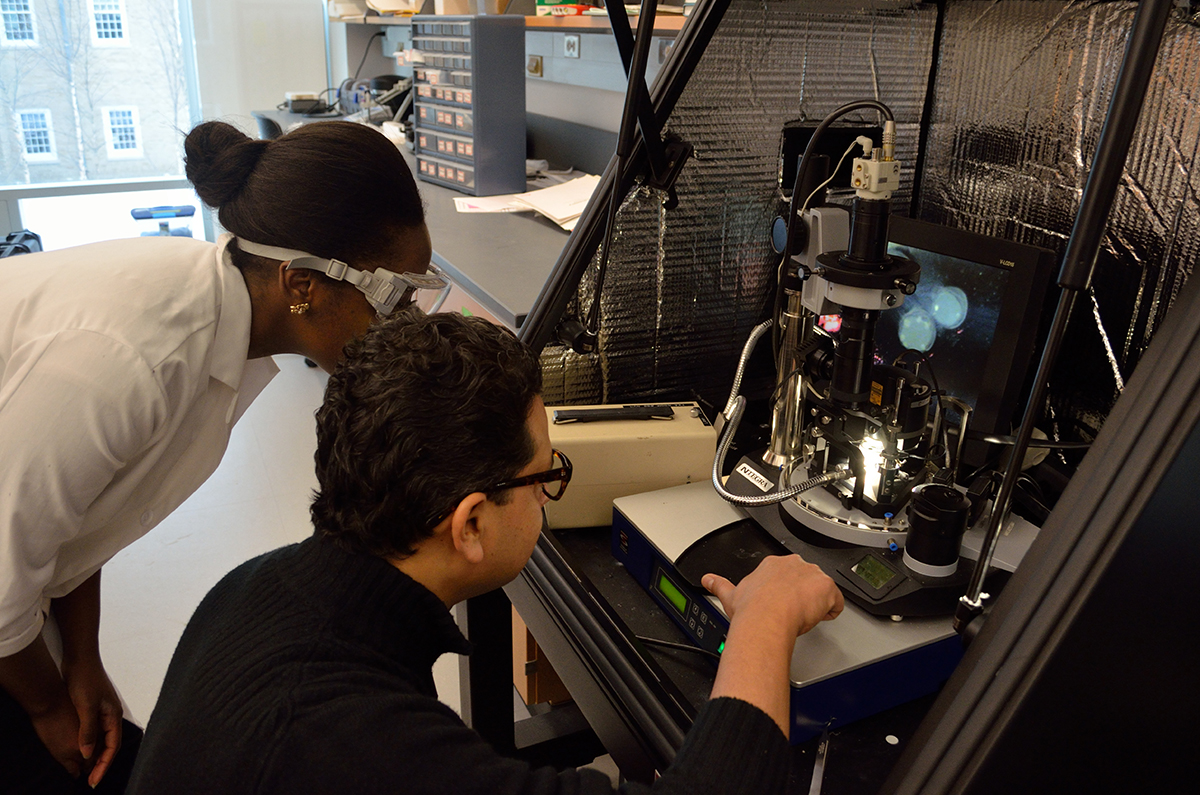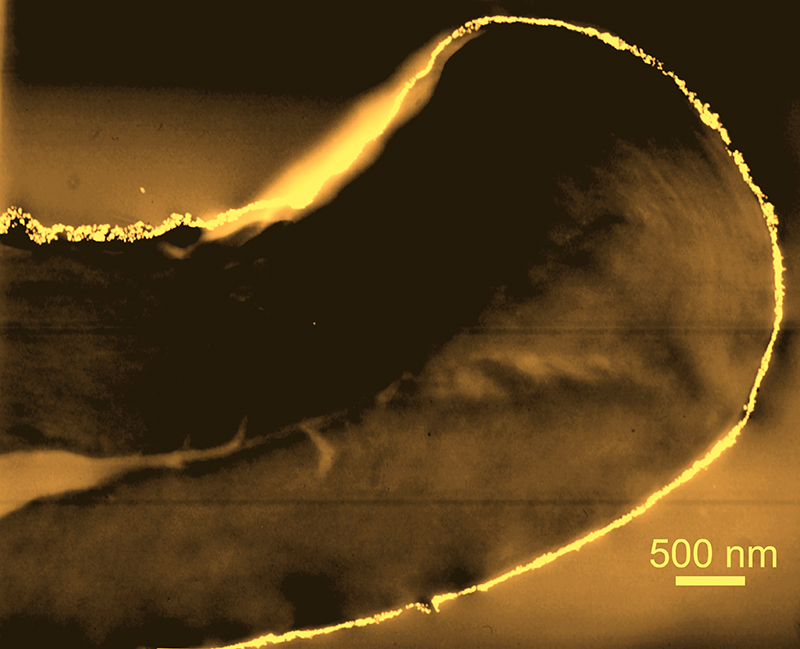Cornell, partners seek to revolutionize textile industry
By Ted Boscia

Cornell faculty members are key contributors to a $317 million public-private partnership that aims to fast-track innovations in “smart” fabrics for use in apparel, transportation, electronics and consumer products, as well as protective gear for soldiers and first responders.
The Advanced Functional Fabrics of America (AFFOA) Institute, a nonprofit led by the Massachusetts Institute of Technology and announced April 1 by U.S Secretary of Defense Ashton Carter, promises to accelerate breakthroughs in fiber science and manufacturing that will lead to fabrics that see, hear, sense, communicate, store and convert energy, regulate temperature, monitor health and change color.
Backed by $75 million in competitively awarded federal funds and $242 million from more than 85 industry and academic collaborators, AFFOA creates a national network to weave innovation into every step of the fabric supply chain, including functional fibers embedded with special properties, new digital tools for apparel design and measurement, rebooted manufacturing processes and training, and technical education of textile workers.
As an AFFOA founding partner, Cornell joins 32 universities to lead coordinated research, testing and development of new fibers, fabrics and textiles. Juan Hinestroza, associate professor in the Department of Fiber Science & Apparel Design in the College of Human Ecology, worked extensively with partners at MIT, Drexel University, the University of Tennessee and other institutions to prepare AFFOA’s concept paper and final proposal.
“With the creation of AFFOA, we are taking a major step forward in revolutionizing the textile industry and speeding scientific breakthroughs that will transform many aspects of our society, as textiles are all around us – in toothbrushes, pillows, car seats, airplanes, protective gear, fashion and more,” said Hinestroza. “I am pleased that Cornell can contribute some of the best textile and fiber testing and research facilities and experts in the nation to this effort.”
Cornell professors from fiber science, engineering, and computer and information science will support an AFFOA core initiative to create an interactive and comprehensive tool to specify fundamental properties of fibers and textiles. Using predictive modeling algorithms – some of them pioneered at Cornell – the tool will simulate how textiles will look, feel and move on a human body before they are manufactured.

“We aim at simulating all aspects of textile production from molecular structure, processing into fibers, manufacturing into fabrics and performance in real-life environments,” Hinestroza said. “This knowledge repository will significantly improve the efficiency of the American textile industry, allowing for rapid selection of materials and manufacturing techniques for new generations of textile and apparel products.”
AFFOA leaders estimated the institute will stimulate 50,000 jobs across the fashion supply chain in the next 10 years. Cornell expects to contribute to training for New York-based workers in partnership with NYSTAR, the Empire State Development’s Division of Science, Technology and Innovation, and the statewide network of community colleges.
“I was impressed by the incredible support for this endeavor shown by the Defense Secretary, as well as governors and leaders of the many states and institutions involved, including a large number of industry representatives,” said Anil Netravali, Cornell’s Jean & Douglas McLean Professor in Fiber Science and Apparel Design, who attended the AFFOA opening event.
AFFOA becomes the eighth Manufacturing Innovation Institute created under the 2014 Revitalize American Manufacturing and Innovation Act (RAMI) introduced by U.S. Rep. Tom Reed, R-N.Y., and U.S. Rep. Joe Kennedy III, D-Mass. RAMI aims to create a nationwide network of regional manufacturing institutes to support domestic production, drive innovation and expand workforce development.
“I am pleased to learn that the Advanced Functional Fabrics of America coalition, led by MIT in partnership with Cornell, has received a $75 million award from the Department of Defense,” Reed said. “I care about bringing quality, advanced manufacturing jobs to our region. I am proud to work with colleagues across the aisle to support projects like this through my and Joe Kennedy’s Revitalize American Manufacturing and Innovation Act. I am thrilled that DOD recognizes the high caliber of the research institutions, businesses and workforce of our region and look forward to the success of this initiative.”
Ted Boscia is director of communications for the College of Human Ecology.
Media Contact
Get Cornell news delivered right to your inbox.
Subscribe